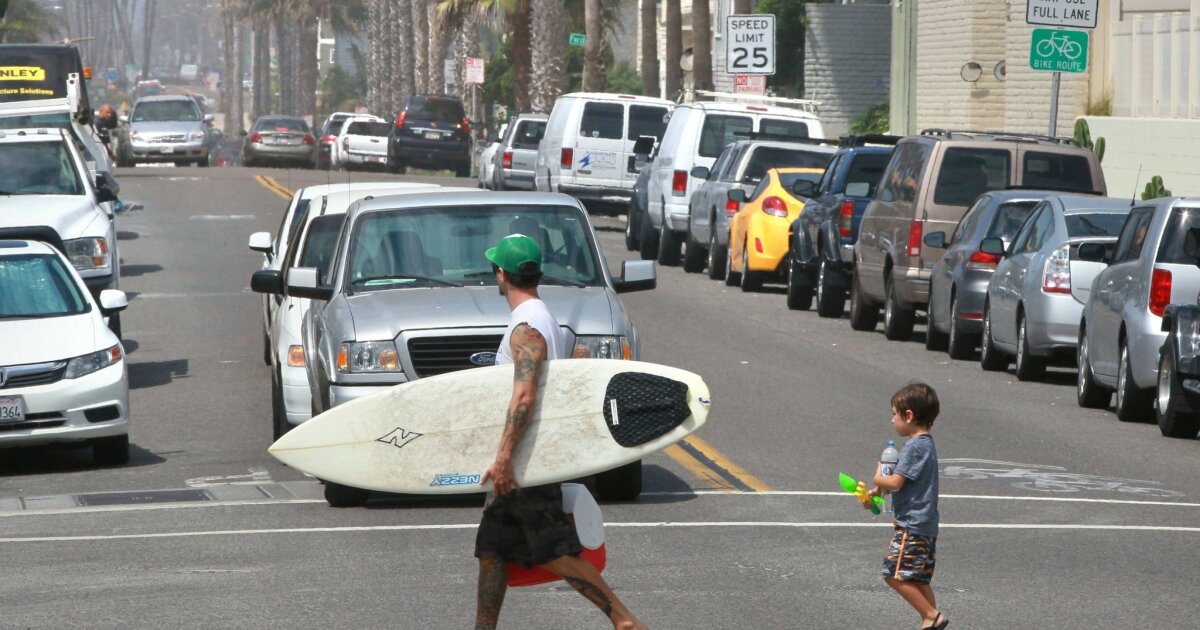New rules for short-term rentals in Oceanside
Oceanside became the latest coastal town in San Diego County to set new limits for short-term vacation rentals this week.
Annual fees for permits and inspections, employment of a full-time code enforcement officer, occupancy limits and other rules were set out in an ordinance that the city council approved 4- 0 Wednesday, in the absence of Councilman Christopher Rodriguez.
Councilwoman Esther Sanchez lobbied for a provision requiring landlords or their representatives to live on rental property in residential neighborhoods, but her proposal received no support from the rest of council. The on-site requirement would prevent a single person or business from owning multiple homes used for short-term rentals.
“That shouldn’t happen in residential neighborhoods,” Sanchez said. “It is important.”
Short-term rentals have proliferated in many vacation destination communities with the rise of online services such as VRBO and AirBnB. A recent tally showed more than 900 rentals in Oceanside, mostly in beach neighborhoods west of Interstate 5.
The increase in short-term rentals reduces the stock of long-term housing. Permanent residents often complain that the influx of short-term workers increases traffic and brings parking issues, noise, and litter to their once-quiet neighborhoods.
“I have three STRs a few doors down from my house, and it’s terrible,” said Carolyn Wilt, a longtime resident of South Pacific Street near Buccaneer Beach. She was among several people at the Planning Commission meeting who called for greater checks.
Carlsbad passed an ordinance in 2015 that limits short-term rentals to its coastal area, generally west of El Camino Real. Del Mar approved an ordinance in 2017, and San Diego passed new rules for rentals last year.
Almost everywhere, it has been difficult to balance the lure of quick profits with the stability of long-term occupants in older residential neighborhoods.
Oceanside’s ordinance will require a second council approval before taking effect, likely later this year.
The ordinance prohibits rentals in mobile home parks, which are subject to rent control in the city. Some people think this would give mobile home owners an unfair advantage.
“That should be a crime,” Councilman Jack Feller said. “It’s really using the system.”
Most short-term rentals are extra bedrooms or spare rooms in family homes, the people said. The owners share the space, watch their guests closely, and problems rarely arise.
“There are a few bad apples that cause a lot of trouble,” Councilman Ryan Keim said.
All operators will need to obtain a municipal permit for an annual fee of $250. All must post 24-hour contact information for any complaints. There is a minimum stay of two nights, a maximum occupancy of two people per room plus two other people, or a maximum total of 10 people.
An initial inspection by the fire department is required, with subsequent inspections every three years if there are no complaints or violations.
Gated communities of 50 or more homes will be exempt from the order. Some, like the North Coast Village condominium complex on the beach north of The Strand, have relied on short-term rentals for 30 years or more and have their own systems in place to regulate them.
Short-term rentals are a significant source of revenue, primarily in the form of a Transient Occupancy Tax, also known as TOT or Rooms Tax, providing $2.47 million during the year. fiscal year 2017-2018, according to a staff report.


Comments are closed.